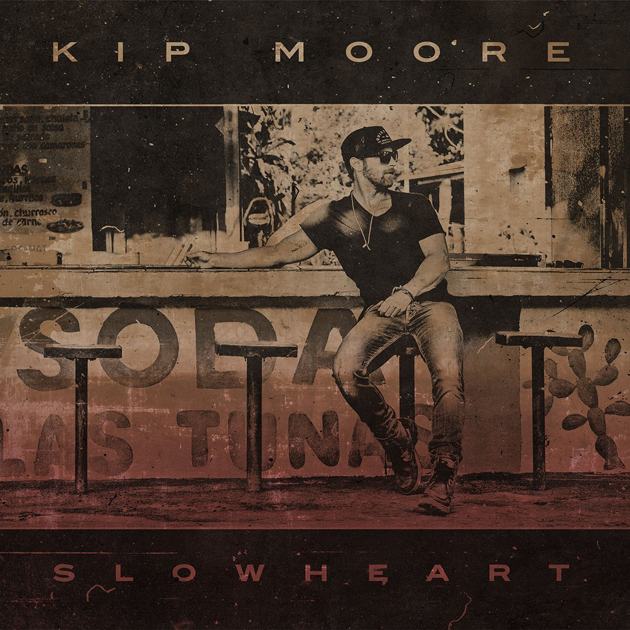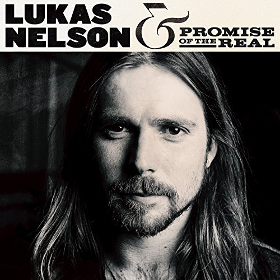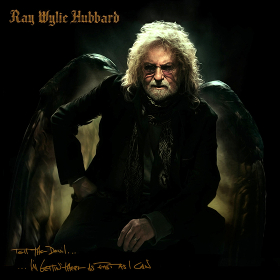Rating: 9/10
Well, I haven’t been this excited about an artist in awhile, and I’m happy to introduce her and her music for any of you who are blissfully ignorant, like I was until last Thursday when she took the stage at Medicine Stone. So, it turns out that Suzanne Santo was previously half of the duo HoneyHoney, and this is her first solo album. It’s hard to pin it into any one genre, but it isn’t straight country; what you’ll get from this record is more a country rock/southern Gothic sound, mixed with some acoustic stuff. The commonality in it is it’s all pretty damn good music.
“There’s a real sexist approach to having a bluntness about you that I really had to cope with. … It’s like ‘Oh, she’s being difficult’ ‘cause you have something to say.” That’s what Suzanne Santo said about the songs on her new album, and you can tell from the opening lines of the album, “I wanna smoke, and I wanna drink, and screw every time I think about you,” that she definitely has something to say. There’s something raw and unpolished in her writing and phrasing that shines through on many of these songs, signifying that, as she has said, this album is quite autobiographical, if at times metaphorical. She’s not afraid to say what she wants; later in the opener, she cries out, “don’t water down my whiskey, babe.” She’s not afraid to talk about vices and explore the darker places in her mind on “Ghost in my Bed” either. This one has some cool fiddle echoing in the background that adds to the atmospheric production. And she’s not shy about telling us exactly how she feels on the appropriately titled “Love Fucked Up,” when she says that she had the power till her lover came and “pulled my hair and bent my neck.” It’s incredibly refreshing to hear her so unashamedly saying things like that, and yes, hearing them from a woman, much like the material on Robyn Ludwick’s album, does add a certain overall power and coolness to the whole experience. As she alludes to in the quote above and points out later in that article, she’s being “unladylike” with this material, but not for the sake of it, it’s just her story.
But she’s not always drinking or talking about sex; there are some truly tender moments on this album too. They serve to show another side of Suzanne Santo and if anything add legitimacy to the darker stuff because it comes across as more real than as just put there to be shocking. “Best out of Me” is one of the best tracks here, as Santo tries to avoid repeating the cycle of the broken relationships in her family’s history. “Better Than That” is another standout, this one acoustic and probably the most country thing on the record. This song really shows off Suzanne’s vocals; she’s got a great ability to really draw out the emotion in each syllable, but sometimes on the more intense tracks, her voice can be drowned out some. In fact, it’s drowned out the most on the atmospheric “Regrets,” but thankfully, we get a beautiful acoustic rendition of that to close the album. Hearing the acoustic version makes me like the other one better–once I understood all the lyrics, I was able to enjoy the rocking production on the original more.
And speaking of production, congratulations to this album for being 100% interesting all the way through. No boring mid-tempo lull in the middle that lost me, no lack of variety in style or tempo, no shortage of interesting fucking melodies…I wrote my rant about melody after Suzanne Santo released this on August 11th, but if I hadn’t, I would have sworn she’d heard me. This is exactly the opposite of everything I criticized in that article. OH, and no crappy vocals–yes, her vocals do get drowned out sometimes, and that’s my only tiny complaint with this album, but she’s a fine singer. She’s got ridiculous power on “Handshake,” not to mention all those cool runs, and then she can tone it down and sing stuff like “Better Than That” beautifully. This has honestly been the first album I’ve genuinely enjoyed all the way through on first listen in over 2 months; the last was Tyler Childers, and y’all know how I feel about that album.
So, if you haven’t figured it out, I love this album. If you are more into darker material, more rock-leaning stuff, spacey production, check this out. If you like your songwriting unpolished and honest, there’s something here for you too. Really, there’s very little wrong with this in any regard, and I actually almost gave this a 10. I think really the only thing holding it back was maybe one more song to blow me out of the water; it’s all very consistent, and there are a couple great songs, but one more, and I’d have probably given this a 10 even despite her voice being drowned out at times. Anyway, I don’t have any more profound thoughts, just go listen, and get to know Suzanne Santo.




